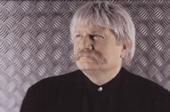Concept
Each Adiemus album is a collection of song-length pieces featuring harmonised vocal melody against an orchestral background. There are no lyrics as such, instead the vocalists sing syllables and 'words' invented by Jenkins. However, rather than creating musical interest from patterns of phonemes as in scat singing, the language of Adiemus is carefully stylised so as not to distract the listener's attention from the pitch and timbre of the voice—for example, as in African languages, syllables ending in consonants are rare. The core concept of Adiemus is that the voice should be allowed to function as nothing more than an instrument, a post-modern approach that has become something of a trend in recent choral writing, for example Vangelis's score for the film 1492: Conquest of Paradise (1992). The word Adiemus itself sounds like (but is spelt differently from) a Latin word meaning 'We will draw near'; Jenkins claims to have been unaware of this.
Instrumentation and Performers
The session singer Miriam Stockley performed the vocal parts on the first four albums. Additional vocals were provided by Mary Carewe on all but Dances of Time, which saw the introduction of the Finnish Adiemus Singers (who would later reappear on Vocalise). Extra vocals and the chorus effects were created by overdubbing multitracked recordings of the singers (in some cases up to forty times) and varying the speed of the tape. Stockley was described by Jenkins as central to the Adiemus project due to her range and intonation, however for reasons that remain unclear she was not re-engaged for Vocalise.
The Songs of Sanctuary orchestra consisted of a string section augmented by various ethnic percussion instruments, with occasional further additions such as bells, a recorder and a quena. Mike Ratledge, with whom Jenkins had played in Soft Machine, contributed to the first album as well. Jenkins added brass and woodwind for Cantata Mundi, and continued to add more diverse instruments such as acoustic guitar on later albums. From Songs of Sanctuary to Dances of Time, the London Philharmonic Orchestra was used; Jenkins later formed his own Adiemus Orchestra to perform on The Eternal Knot recordings, returning to the LPO for Vocalise.
Musical style
Though there has been considerable evolution over the course of the project, the musical language of Adiemus draws heavily on classical and world music. Jenkins follows conventions of tonality up to a point—his harmony is derived from gospel and African music, decorated with functional dissonances such as suspensions and with greater freedom of movement between loosely related key areas. He often employs unusual time signatures, with a slow 3/2 being very characteristic along with 6/8, 9/8 and even 5/8 (Cantus Inaequalis from Songs of Sanctuary). The percussion section, when used prominently, typically gives the pieces an upbeat, tribal-like rhythm.
The underlying mood of Adiemus is energetic and uplifting, complemented by pieces with what Jenkins describes as an ecclesiastical mood. Many listeners identify the sound of Adiemus with New Age or Celtic music; indeed The Eternal Knot is an explicitly Celtic-themed album that formed the sound-track for the S4C documentary The Celts. In classical music circles Adiemus has struggled to distance itself from the chill out quasi-genre, but the earlier albums are considered important crossover works nonetheless.
Audience
Songs of Sanctuary was a huge commercial success, topping classical album charts. It is considered by critics to be the quintessential album, on which Jenkins' vision succeeds to the greatest extent with the fewest resources. Though none of its successors has achieved the same critical acclaim, Adiemus acquired a cult following and maintained a place in mainstream consciousness through its use in TV commercials, in particular the track Adiemus in a Delta Air Lines commercial, and Cantilena from Cantata Mundi in a recent Cheltenham & Gloucester commercial. The Adiemus track is also used as the soundtrack behind the Kubla Khan pillar show at the end of the big room cave tour in Kartchner Caverns State Park in Arizona. Additionally, Adiemus was used in the trailer to Invisible Children's documentary movie. It is also used in the New South Wales Tourism TV commercials (Australia).
